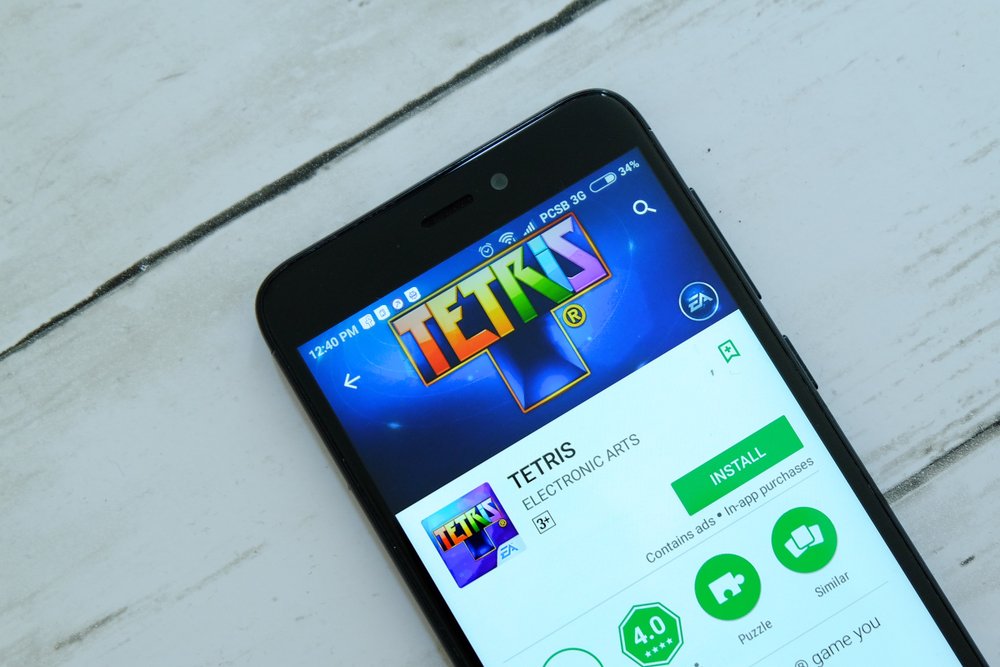Last Updated on January 7, 2024 by Gamesver Team and JC Franco

It’s safe to say that Tetris might not be suitable for every type of gamer. Most of us have played the popular Tetris game. It’s been around for many decades, providing us with hours of entertainment. Despite all the benefits of Tetris, there are still some reasons why playing this puzzle video game might not be the best idea or not best suited to everyone.
A game like Tetris is not for someone who can’t stay focused on a single ttask for long. It’s not for someone anxious to jump to the final round because there isn’t one. This is just the tip of the iceberg when it comes to reasons why to some people, Tetris isn’t “all that.”
If you’re a Tetris addict, you’ve probably encountered most of the problems listed below as drawbacks of this popular game. Tetris is one of the most popular timeless video games on the market, but some people can’t even last five minutes with it. Let’s explore some of the lesser-known disadvantages of playing Tetris.
14 reasons why Tetris may not be for you:
1. You’ll be hooked in no time.
Have you ever stayed up all night playing Tetris? Many studies have shown that people play Tetris for their innate desire to “create order out of chaos,” as creator Alexey Pajitnov put it. The game’s simplicity makes it highly addicting because it provides almost immediate satisfaction when you complete its goal — to clear the lines at the bottom.
Adam Alter, who wrote a book called “Irresistible: The Rise of Addictive Technology and the Business of Keeping Us Hooked”, explained that Tetris “allows you the brief thrill of seeing your completed lines flash before they disappear, leaving only your mistake. It is in this sweet spot—where the need to stop crumbles before obsessive goal-setting—that addictive experiences live.”
2. It is repetitive.
Along with its addictive nature, Tetris is also a game that revolves around repetition and incomplete tasks. As soon as you clear a line, the game continues to run without giving you a break. Also, the way the pieces are distributed becomes repetitive after a while.
Original versions of the game used a random distribution system; however, newer versions use a distribution system that simulates drawing pieces from a bag. The bag is filled with the same elements several times, ensuring players receive an equally distributed set of blocks.
3. You might get hurt.
People who play video games for hours on end may face a range of problems. As Tetris is an endless game, it’s easy for players to get lost in it. The effects of holding your control or your phone or clicking arrows on your keyboard to manipulate the falling shapes may be negative for your health. People who play video games for long periods have reported developing repetitive strain injuries in their hands and arms.
4. You might struggle to keep up with your responsibilities.
Due to the addictive nature of video games like Tetris, people who play video games for hours report struggling to handle their responsibilities during the day. So, playing Tetris for a long time can have prejudicial for your daily routine.
5. It may get boring.
Even though Tetris comes in more than one version, some people can’t seem to get enough of it, and others cannot stand it as well. Whatever Tetris version you play, the goal is always the same — clear the lines and arrange the blocks.
A video game that lacks surprises and variation becomes boring to the player. Tetris falls short on the thrill because there’s no enemy to fight against; there’s no winning; the game remains the same from the start until you decide it’s time to stop.
6. Some versions don’t allow multiplayer.
When Alexey Pajitnov created Tetris, it was only a simple, single-player puzzle game. Currently, there are several (and more complex) versions of this classic game. When Tetris first came out with multiplayer features, players were thrilled. However, it’s not available for all versions, so you may not be able to play your favorite one with your friends.

7. Getting overloaded by visual fluff
Fans of the original Tetris might not like new versions of the game that utilize different music, colors, and visuals. For example, the Tetris Effect version has a musical emphasis and features its own set of atmospheric tracks that tie the game’s beats and melodies. If all of this visual stimulation is too distracting for you, look for versions that are more in tune with the original design.
8. Many online versions are not part of the original franchise.
Tetris has been released across several platforms and recognized by the Guinness World Records as one of the most ported video games in history. Because Tetris is such a simple game to develop, it’s easy to find online versions that are not licensed. The Tetris Company has done a great job shutting down its game knock-offs. So be careful if you are playing a Tetris clone, it might disappear soon.
9. Some Tetris versions are almost impossible to find.
If you are a video game collector, you might need to find a gold pot. Some Tetris versions are so rare that they can cost thousands of dollars. For example, there are only ten copies of the Sega Genesis Tetris game. You can even find a rare and sealed Nintendo DS Tetris version on eBay.
10. Winning is impossible.
Tetris is a never-ending flow of falling pieces that the player has to eliminate and prevent additional ones from reaching the top, resulting in a loss. That’s the only way to end the game — with a defeat instead of a victory. That’s because there’s no way of winning. You just keep scoring point after point, but you never get to the end as a winner.
11. It’s often unpredictable.
Tetris players cannot plan their next move. The game only lets you see what the next piece is. Some versions let you know what the next three shapes are, but that’s it. You can’t plan ahead and decide where to place your blocks. So if you are someone who likes to control the future, Tetris is here to frustrate you.
12. You can’t pause the game to plan your next move.
Just as you cannot predict the game, you are also unable to pause it to analyze your next move. When you hit pause, the screen gets blurry, and current and upcoming pieces are difficult to see. A feature called “infinite spin” allows the player to keep spinning the blocks, even after they reach the bottom. This prevents it from setting and the next piece from falling. However, that feature is only available on less complex versions, and it has been changed to limit the number of rotations.
13. Free-to-play versions aren’t always what they seem.

There are several free versions of Tetris. The catch is that they often include some premium features, and you have to pay for those. So while you are enjoying the game for free, if you want an extra boost, you’ll need to pull your credit card. If you are underage, make sure to ask your parents for permission before making that purchase. You wouldn’t want to be grounded because of Tetris.
14. It can make you a little aggressive.
Some people can’t handle frustrations. You might lose your cool after a few rounds of Tetris that are getting you closer to the top. Just keep in mind that in the end, it is just a game.
Last word
Like any other game, Tetris comes with pros and cons, and it’s up to you to decide if it’s worth your time. Whether you love it or hate it, Tetris is undeniably a very successful classic game, with players from all over the world who even turn a blind eye to its downsides. Just ask any Tetris fan what they think, and they will say the game has no flaws.

